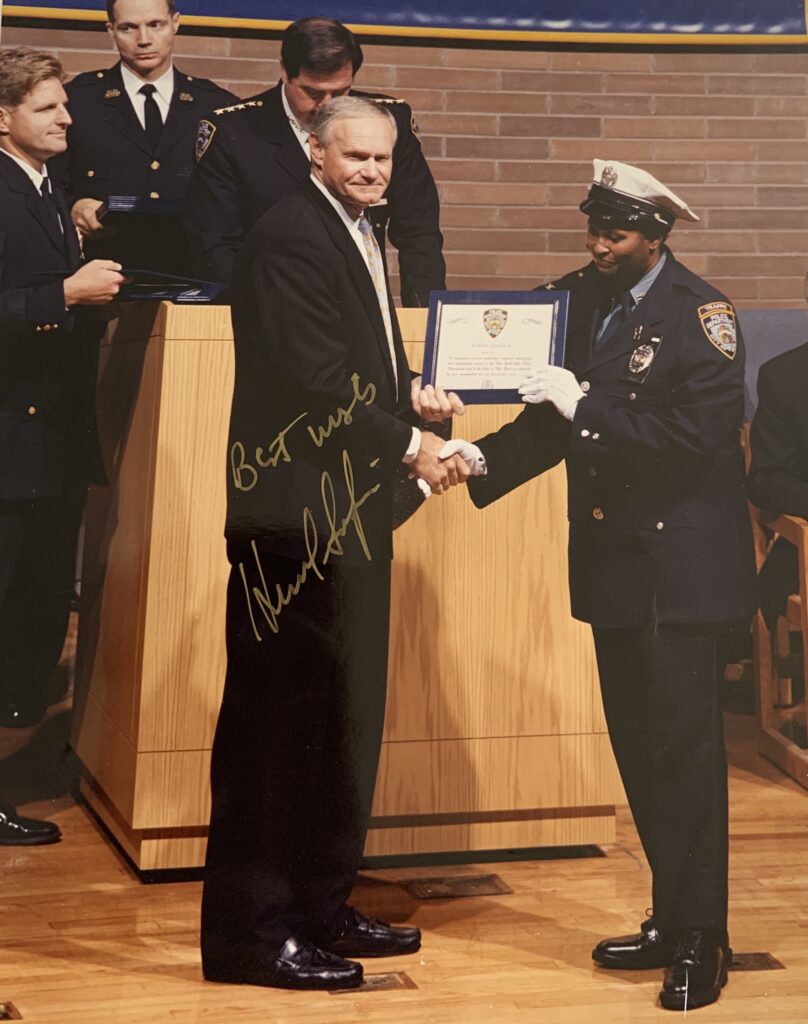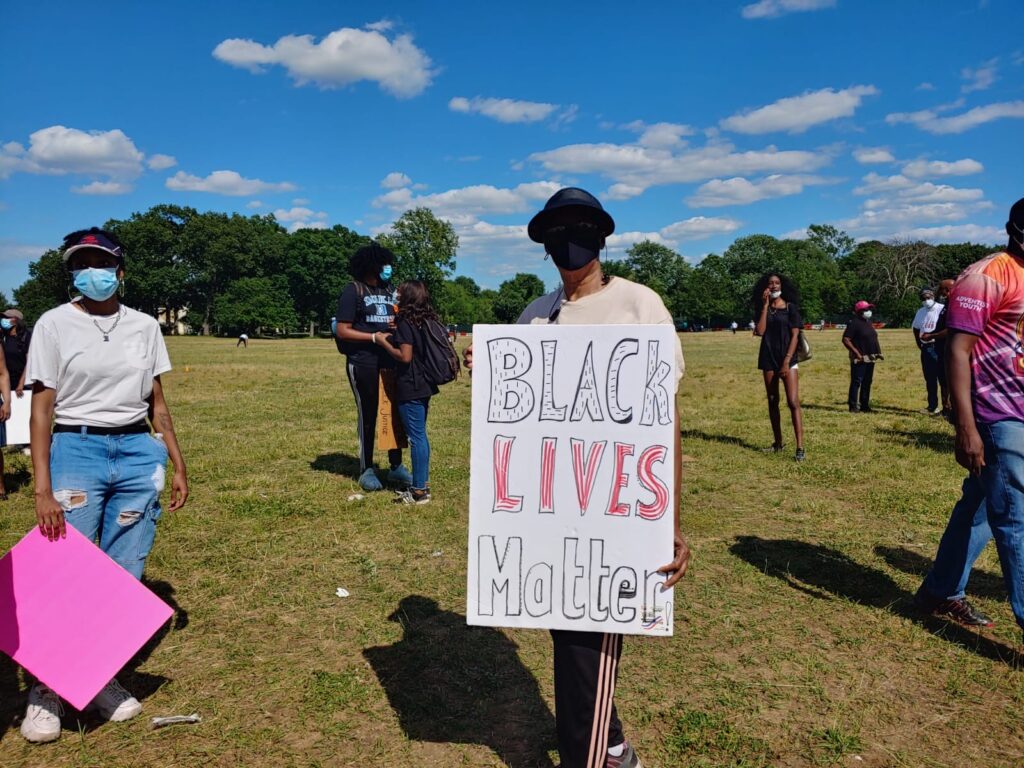Criminal Justice Lifestyle & Culture
A Retired Cop Joins Black Lives Matter
By Paige Gibbs
Spectrum staff
Rose Facey’s 27 years as a sworn officer of the New York Police Department gave her a close-up view of what can and does go wrong in American policing. And that’s why, at 69, she has joined Black Lives Matter protesters — at three separate rallies, so far — who are young enough to be her grandchildren.
“I feel like it makes a big difference because I’m supporting them,” the Richmond Hills, Queens grandmother told The Spectrum.
Although her age puts her in an at-risk category for Covid-19, that didn’t stop her. “People weren’t up on each other and everybody had their mask on,” she said.
Facey, who immigrated to the United States from Jamaica in 1989, said she became a police officer because it provided a dependable paycheck. Before joining the NYPD in 1990, she had been a nurse but couldn’t find a full-time job in that field.
“The moment you go into training, once you do that physical and psychological test, your benefits start,” Facey said. “You know that some people just stay with a job because they know they have to pay the bills. You just get in there so you can live comfortably.”
Those financial benefits keep many police officers on a job that sometimes presents its own problems, including for the women and people of color who are minorities in the mostly white and male NYPD.
Once, without any proof, her police sergeant boss falsely accused her of busting the mirror on a car parked at a precinct that was one of several where she worked as part of a special unit serving all five of New York City’s boroughs, Facey said.
Other times, she got angry while watching a black commander repeatedly ask a white commander — they were of equal rank — for permission to do things as simple as giving officers a day off. “Once the white officer granted it, whether the black one turned it down or liked it or not, he had to go with it,” she said.
Other degrading things happened.
And officers, in her opinion, were trained to give people a rough time even when that was not necessary.
She often took a different approach, she said. One time, she pulled over a man driving with a suspended license. He told her he was trying to work to help his family. She instructed him not to drive anymore, without a license. Instead of arresting him, she let his boss pick him up.
Another time, some of her colleagues were trying to arrest a man who was not guilty of anything. After all these years, she cannot remember what they’d accused him of. She does remember one of them kneeing the detained man in the back — and another officer getting very upset when she tried to stop what was happening.
“He was pissed, he was so pissed,” she said.
As outrageous as it was, she understood why a police thought he could kneel on George Floyd’s neck for 8 minutes and 46 seconds. Watching that video, made her cry.
“If I was one of the other cops, I would have pulled him off of him and told him to stop,” she said.
She understands, however, why the other police officers in that Minneapolis case didn’t intervene. She suspects that they feared retaliation. “If you say something your superior doesn’t like, they put you in the doghouse,” Facey said.
If you aren’t constantly making arrests, even for the smallest infractions, she added, “you don’t move up or get promoted. You don’t get the best cars. Be aggressive for them to recognize you? I think that’s wrong.”
Once, when she spoke out about a procedure at work, she was switched to another office on that very day. “The next morning you go in and they’ll tell you to pack up because you’re being transferred,” she said.
Joining the current protests is her way of supporting the Black Lives Matter movement and pushing for change in how police operate. She knows there are good police officers. But the way many police officers are trained doesn’t bring out the good in them.
She said she will continue to join the protests. She also will continue to do other community work, including volunteering to provide free health services on the island where she was born and reared. For six years, she has traveled there with a team of doctors from New York’s Vincent HoSang Family Foundation. “If they come to see the dentist, then, I organize that they came to see the dentist,” said Facey, who mainly does crowd control and patient registration.
Through her church, she visits the elderly and the sick and helps take care of some of their daily needs.
Facey’s sister, Beverly Foster, of Elmont, Queens, isn’t surprised by any of the marching and volunteering that Facey does: “She’s just a very kind and caring person, who’s always very willing to help whenever help is needed. Outside of her family she finds time for others.”
She will keep finding time to protest. She recognizes the need for change in the field where she dedicated 27 years of her own work life. “I believe that they’re not going to do it now … it’s so much paperwork, it’s so many things to change, it might not change. Maybe in the future. I think my grandson’s children will see the changes.”



